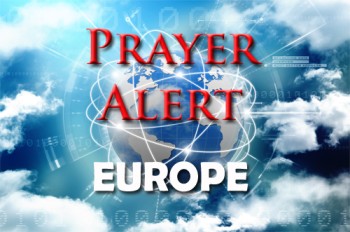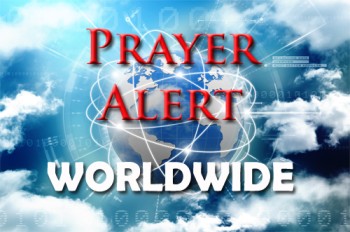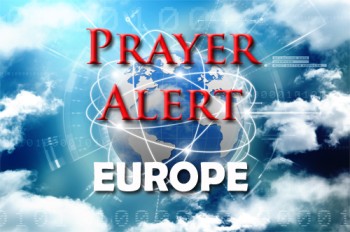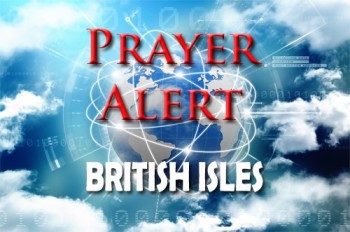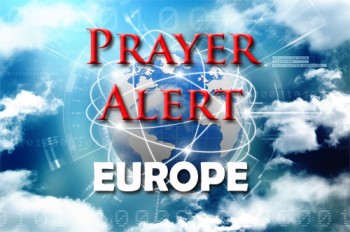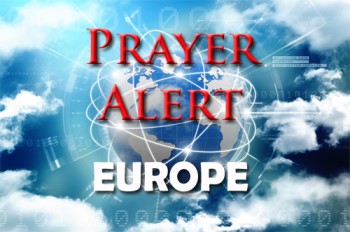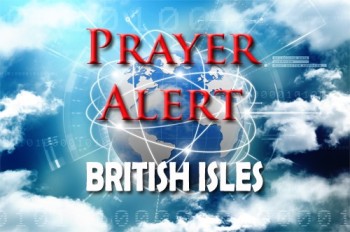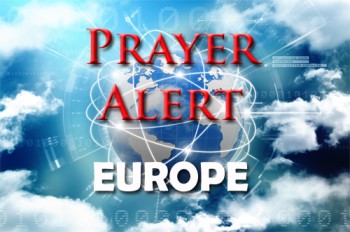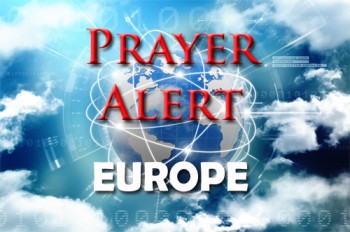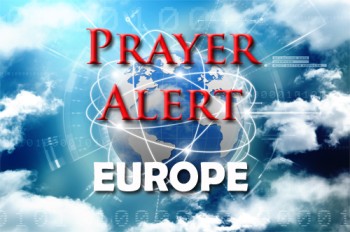Displaying items by tag: Ukraine
Russia claims Ukraine’s cross-border advance is ‘terrorist attack’
Russia has reported ongoing fighting in the Kursk border region following a Ukrainian incursion. Its troops claim they have prevented pro-Kyiv forces from advancing deep into Russia, repelling aerial attacks overnight and destroying fifty armoured vehicles, including seven tanks. Ukraine has not confirmed the assault. Reports suggest Ukrainians occupied several settlements in Kursk. The incursion involved about 300 soldiers, eleven tanks, and over twenty armoured vehicles. Pro-Kyiv forces have made brief incursions into Russia since February 2022. A Russianspokeswoman has labelled Ukraine’s attack on Kursk a ‘terrorist act ‘against civilians. Five people were killed and 28 wounded, including six children. Ukrainian forces reportedly destroyed a Russian missile, two drones, and a helicopter. Intense battles continue, with suggestions of a new front opening. Meanwhile, Mali has severed diplomatic ties with Ukraine: see world article below.
Mali cuts ties with Ukraine after rebel attack
Ukraine has criticised Mali's decision to sever diplomatic ties, calling it short-sighted and hasty. This decision followed comments from Ukraine's military spy agency about the recent clashes in northern Mali, where Tuareg rebels claimed responsibility for killing 84 Russian Wagner mercenaries and 47 Malian soldiers. This was Wagner's most significant defeat since assisting Mali's military against insurgent groups two years ago. Ukraine denied involvement, stating no evidence was provided. After the spy agency mentioned that rebels had received ‘necessary’ information for the attack, Mali interpreted this as an admission of Ukraine's involvement, condemning it as a violation of sovereignty and support for terrorism. Senegal summoned Ukraine’s ambassador over related accusations. These events occur amid deteriorating relations between the West and Sahel nations, which have expelled French and US forces and turned to Russian mercenaries for security following recent military coups in Mali, Burkina Faso, and Niger.
Ukraine: massive drone attack repelled
On 31 July Ukraine repelled one of Russia's most massive attacks since the war began, shooting down 89 Iranian-designed explosive drones and a missile, primarily targeting Kyiv. Despite debris damage to buildings, there were no casualties. This attack comes 29 months into Russia's invasion, with daily bombardments straining Ukraine's air defences. Russia claims it only targets military and energy sites, but residential areas are frequently hit. Volodymyr Zelensky stressed the need for sufficient air defence supplies to protect against Russian strikes and called for faster deliveries of systems like the US-made Patriots. Meanwhile, Ukraine struck a weapons depot in Russia's Kursk region, causing a fire. Russia's slow advance continues, with small gains reported in July, capturing eight villages in north-east, eastern, and southern Ukraine.
First Prime Ministers Question Time of New Parliament
Keir Starmer marked a significant milestone Wednesday with his first PMQs as Prime Minister, and the first for a Labour leader in over a decade. Here are some key takeaways: - The tone was notably more amicable than in past sessions. The leader of the opposition, Rishi Sunak, even made a self-deprecating joke, saying Team GB wouldn't want his advice on "how to win." - Sunak focused his questions on national security, an area where both Conservatives and Labour show strong support, particularly for Ukraine. - When Liberal Democrat leader Sir Ed Davey called for more support for carers, Starmer commended Davey as a "tireless campaigner" for carers' rights. - The SNP's Stephen Flynn adopted a more confrontational approach, criticizing the prime minister over the two-child benefit cap. - Several new faces appeared in the Commons. Questions came from Green Party co-leader Adrian Ramsay and Reform UK MP Rupert Lowe, while Reform leader Nigel Farage observed the proceedings. This PMQs session highlighted a mix of unity and contention as new leaders and members engaged in the debate.
Ukraine: Sea of Azov Emptied of Russian Warships, Says Ukrainian Navy
Recent Ukrainian attacks in the Black Sea have compelled the Russian navy to rebase its ships, according to the Ukrainian navy. Dmytro Pletenchuk, a Ukrainian navy spokesman, confirmed that no Russian naval vessels remain in the Sea of Azov. Russian ballistic missile strikes on Kharkiv on Wednesday damaged the office of a Swiss mine-clearing NGO, injuring six people. Kharkiv mayor Ihor Terekhov reported that an industrial area was targeted. Kharkiv police head Volodymyr Tymoshko described a "double-tap" attack aimed at rescuers, who fortunately evacuated just before the second strike. Heavy Russian attacks have intensified around Pokrovsk in the Donetsk region, making conditions "tense" and difficult. Ukrainian forces continue to defend the area. The Institute for the Study of War (ISW) noted marginal Russian advances near Kharkiv and confirmed progress in Donetsk oblast. The ISW highlighted Russia's significant challenges in maintaining troop numbers and replacing heavy losses of equipment. Ukrainian authorities noted that Russia's current production is insufficient to cover these losses, with a British assessment indicating that Russia can only sustain operations until 2026-2027 by refurbishing Soviet-era stocks.
Balkans / Greece / Ukraine: heatwave causes huge problems
The Balkans, along with much of Europe, are enduring a prolonged heatwave, which has led to the unprecedented drying up of Serbia's Rusanda salt lake. An expert has warned that such heatwaves could become more frequent due to climate change. Temperatures in the Balkans have soared to 39°C (102°F), and the Adriatic Sea reached a record-high temperature of 29.5°C in Croatian coastal resorts. North Macedonia and Albania have deployed resources to combat forest fires, with North Macedonia declaring a state of emergency. The World Bank has highlighted the need for significant investment to mitigate the impact of climate change. Other European countries, including Italy, Greece, and France, are also experiencing extreme heat. In Ukraine, rain is forecast on 18 July, to break the pattern of several weeks of abnormally high temperatures; the country’s grain harvest is likely to be significantly reduced.
Keir Starmer warns Putin - NATO resolve 'bigger than ever'
In Washington, Keir Starmer has issued a stern warning to Vladimir Putin, asserting that NATO's resolve is stronger than ever in the face of Russian aggression. After meeting with Volodymyr Zelensky, Starmer reaffirmed the UK's unwavering support for Ukraine, emphasising NATO's unity and determination to counter the Russian threat. The ongoing conflict in Ukraine has resulted in significant casualties and territorial losses, prompting the West to supply long-range missiles to aid Ukraine's defence efforts. Starmer's visit also involved discussions on enhancing European defence cooperation and addressing the challenges posed by China, reflecting a comprehensive approach to current global security issues. His statements underline a continued commitment to international alliances and a robust stance against any attempts to undermine global stability. This visit marks a significant moment in reinforcing diplomatic ties and strategic partnerships - essential for confronting evolving global threats.
Ukraine: children’s hospital severely damaged by Russian missile
A Russian cruise missile has struck Okhmatdyt, Ukraine's largest children's hospital, in central Kyiv. The attack caused significant damage, including a collapsed roof that killed two hospital workers and injured 16 people, including seven children. Thousands of children, including those with cancer, undergo treatment at the hospital every year. The strike was one of forty launched against several Ukrainian cities, which resulted in at least 36 deaths and 125 injuries. Moscow, which habitually denies targeting civilian infrastructure, claimed the hospital was hit by a Ukrainian missile. The latest UN figures show over 30,000 civilian casualties since February 2022: see
Ukraine: Orban visits, calls for ceasefire
In his first visit to Ukraine for ten years, Viktor Orban has called for a ceasefire. A longstanding critic of Western military aid to Ukraine, he suggested that a swift ceasefire could expedite peace talks. He also expressed a desire to improve ties with Ukraine and offered economic assistance. Zelensky appreciated his visit, but stressed the need for a ‘just peace’ after over two years of fighting. Orban’s visit coincides with Hungary’s assumption of the EU presidency, which has raised concerns due to Budapest’s warm ties with Moscow. In the past, Hungary has accused Ukraine of curbing the rights of ethnic Hungarians, which Kyiv denies. Zelensky has recently said he is preparing a comprehensive plan for ending the war.
Netherlands: prime minister to become new NATO head
Dutch prime minister Mark Rutte is set to become the next NATO secretary-general after Hungary lifted its veto, following a letter from Rutte to Viktor Orbán. The letter promised Orbán that, as NATO head, Rutte would not deploy Hungarian troops or use its funds to support Ukraine. The current secretary-general, Jens Stoltenberg, says the selection process will conclude ‘very soon’. Orbán posted the letter on social media, confirming Rutte’s commitment to the agreement. Rutte acknowledged past remarks which had caused dissatisfaction in Hungary and reassured Orbán of his respect for the deal made between Stoltenberg and Orbán in Budapest. His confirmation depends on consensus among all NATO members; with the veto lifted, he is now poised to succeed Stoltenberg.
